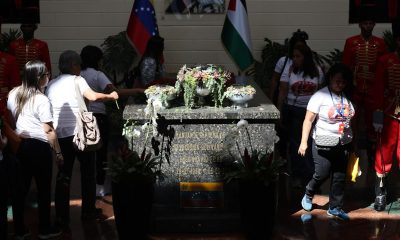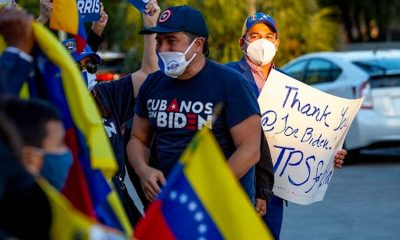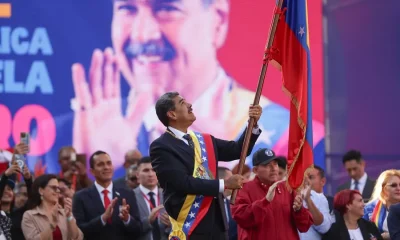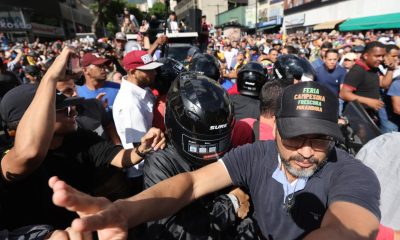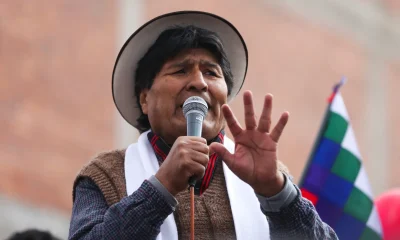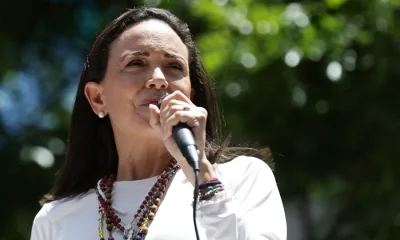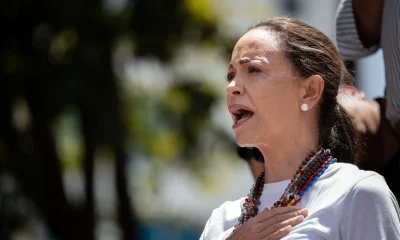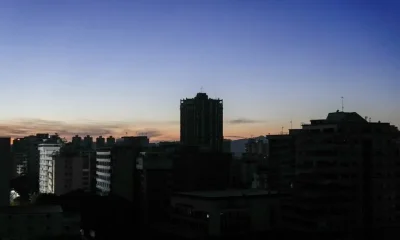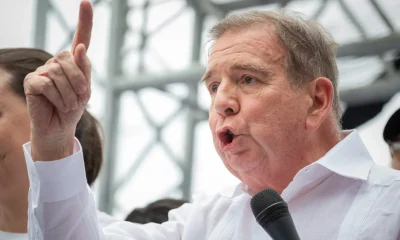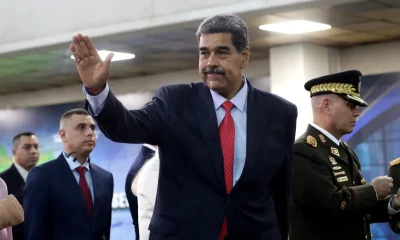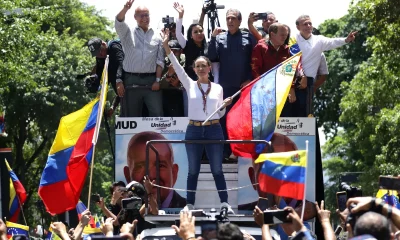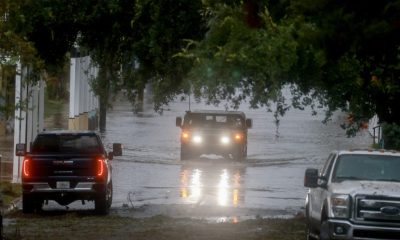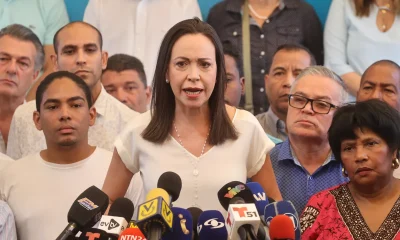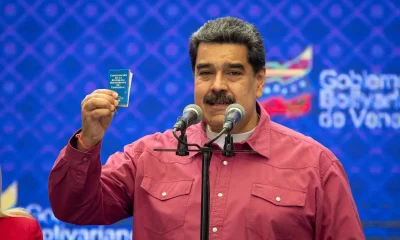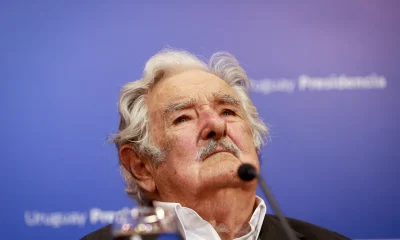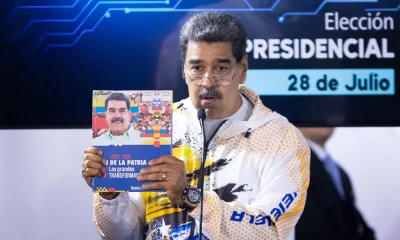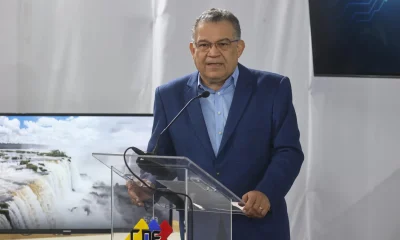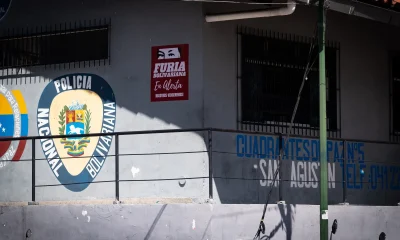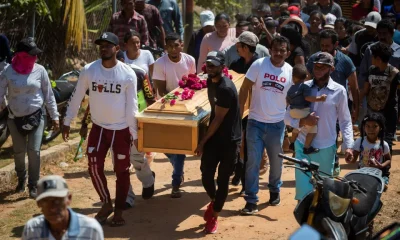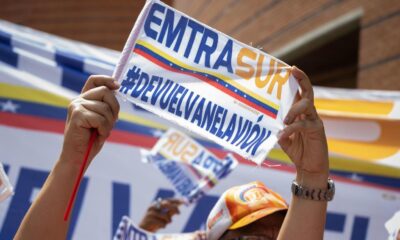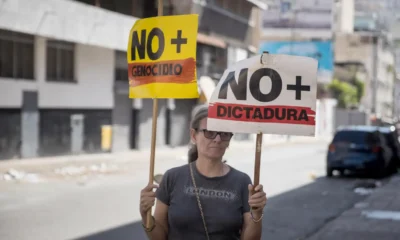International
Prosecutor’s Office reveals details of corruption scheme in Venezuela
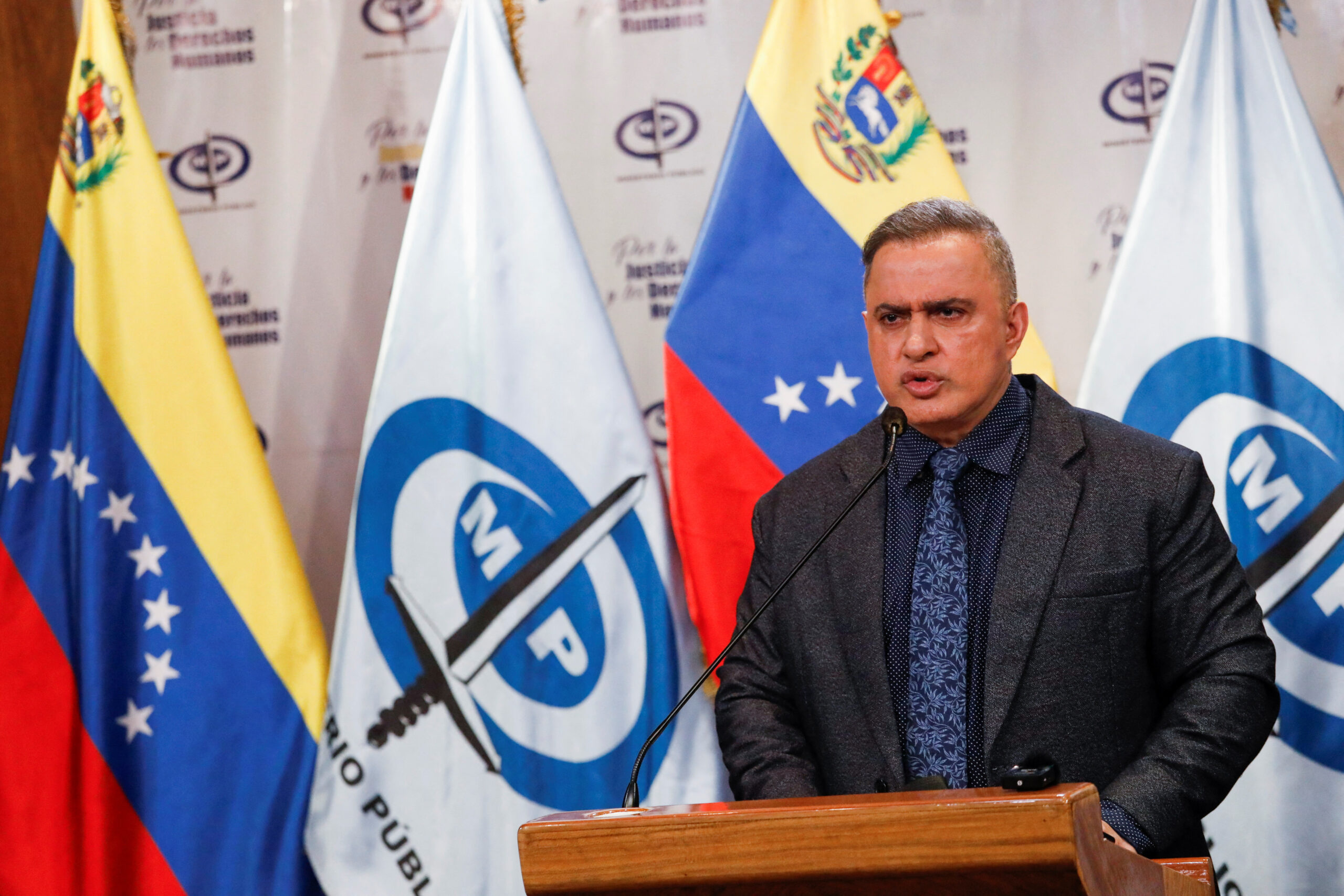
March 27 |
Venezuela’s Attorney General, Tarek William Saab, confirmed on Saturday that the corruption scheme in Petróleos de Venezuela (PDVSA) involved the National Superintendence of Crypto-assets (Sunacrip) and implied “parallel operations” with crude oil cargoes in ships, without “any type” of administrative control or guarantees, “failing to comply with the contracting regulations”.
“Once the legally assigned crude was commercialized, the corresponding payments to PDVSA were not made, that is where we are seeing the patrimonial damage, the party that makes a negotiation outside the law does not comply with the payments, we are clearly seeing the criminal modality that they used”, he said.
Saab also informed that it was determined that the network used a conglomerate of mercantile companies to legitimize the capital obtained from the sales, through the acquisition of crypto-assets, movable and immovable goods, investments in the construction and real estate sector and demonstrating a “lifestyle that does not correspond to any public official”.
The prosecutor added that young people were recruited to be included in the money laundering network and that they were rewarded “with a lavish, illegal and criminal lifestyle”.
The detainees will be charged with appropriation of public assets, influence peddling, money laundering and association. The public officials will also be charged with the crime of treason.
In a press conference this Saturday, through the State channel, a video was released showing some of the arrests, warehouses where machines used for bitcoin mining were located and operations for the seizure of assets, including airplanes, buildings and fleets of vehicles.
“The assets of these subjects obtained in an illicit manner are already under safekeeping, it is an important recovery”, he insisted.
The prosecutor avoided specifying specific figures on the patrimonial damage, arguing that they are in an “investigation phase”.
Saab specified that ten officials and eleven businessmen were arrested for the corruption scheme.
The officials are: Antonio José Pérez Suárez, vice-president of Commerce and Supply of PDVSA and whom he pointed out as “main boss” of the corruption structure; Joselit Ramírez Camacho, now former superintendent of Sunacrip, who appears in a list of the US Department of Homeland Security of wanted for “money laundering and evasion of sanctions”.
In addition, the now former congressman Hugbel Roa, who, according to the prosecutor, used his position as congressman of the National Assembly to manage the assignment of crude oil loading contracts to operators who then did not pay, and who he described as “one of the most brazen of the criminal gang”.
José Agustín Ramos, Yamil Alejandro Martínez, Oduardo José Bordones, Heinrich Chapellín Biundo and Jesús Enrique Salazar, officials of PDVSA’s vice-presidency of Commerce and Supply, with responsibility for the operations of contracting, trading, loading and transportation of crude oil abroad, detailed the prosecutor.
Rajiv Alberto Mosqueda and Reny Gerardo Barrientos, both officials of the Intendencia de Minería Digital, were also arrested.
The businessmen are Manuel Meneces, who was identified as a financial operator and advisor to the head of the structure; Roger Martínez, “coordinator of financial operations and liaison between public officials and associated businessmen”; Rafael Perdomo and Roger Perdomo, “brothers who acted as associated businessmen and national financial operators to legitimize criminals”.
In addition, Daniel Prieto, “associated businessman and financial operator at national and international level who was arrested in the Dominican Republic at the request of the Venezuelan State.
He also mentioned Cristopher Barrios, Joana Torres, Alejandro Arroyo, Bernando Arosio, Fernando Bermudez and Leonardo Torres.
“All of them linked to this corruption network, with the same modality, laundering money, legitimizing capitals, they were assigned millionaire contracts that they almost never fulfilled, even since Hugbel Roa was Minister of Food”, specified Saab.
Saab announced that arrest warrants were released for eleven more persons: Juan Manuel Afonso and Manuel Ramón Afonso, “brothers as associated businessmen and international financial operators to legitimize illegally obtained capitals”; William Ribas, Ximena Parada, Eduardo Noriega, José Luis Ferrandiz, Olvanis Gaspari, Railyn Elizabeth Yépez, Rodolfo Moleiro, Alejandro Londoño and Yurabic Ravelo, regarding the latter he did not specify how they are involved.
“Several of these ladies who appear as captors to legitimize capital for these subjects appear to be linked,” he added.
The prosecutor made special mention to Pedro Hernández, mayor of the Santos Michelena municipality in Aragua state in the center of the country, arrested for his links with “El Conejo”, one of the most wanted criminals in Venezuela and who was killed this week, as confirmed on Friday by the Minister of the Interior, Remigio Ceballo.
“This mayor financed and supported with State resources parties, public events and logistic material of criminal groups, among them this guy’s (…) the maximum penalty will be applied to this group of people”, he assured.
Regarding the mayor, Saab accused him of having direct links with the criminal Héctor Guerrero, alias “el niño Guerrero”, who leads “terrorist cells at international level” in countries such as Colombia, Ecuador, Peru and Chile.
The mayor was charged with the crimes of aggravated extortion, terrorism, obstruction of the freedom of commerce, aggravated criminal association, money laundering and treason.
The prosecutor reiterated that attorney Cristóbal Cornieles Perret, president of the Criminal Judicial Circuit of Caracas and José Mascimino Márquez, fourth judge of Control with competence in cases related to terrorism crimes, were arrested for having dropped charges and granted a substitutive measure to Cheremo Carrasquel, a man prosecuted as a member of the Ten del Llano, an organized crime group.
He also confirmed that, in Falcón State, attorney Bracho Gómez was arrested for having agreed to deliver motor vehicles that were subject to a precautionary seizure measure.
Regarding members of the former interim government, Saab reminded that they have opened approximately 22 investigations for crimes of usurpation of functions, capital legitimization, terrorism, corruption and treason, among others.
“We have achieved 288 arrest warrants, 129 people have been arrested and charged, here there has been no impunity against this sector called interim government, there are 13 people with extradition request, 63 people have been sentenced and 137 raids and 149 seizures have been made. There is an important result”, he stated.
According to Saab, since August 2017 the MP has investigated 31 plots linked to the fight against corruption, particularly to the oil industry, which has left 194 people prosecuted and tried and 75 convicted.
International
Japan reopens Kashiwazaki-Kariwa Plant despite public concerns
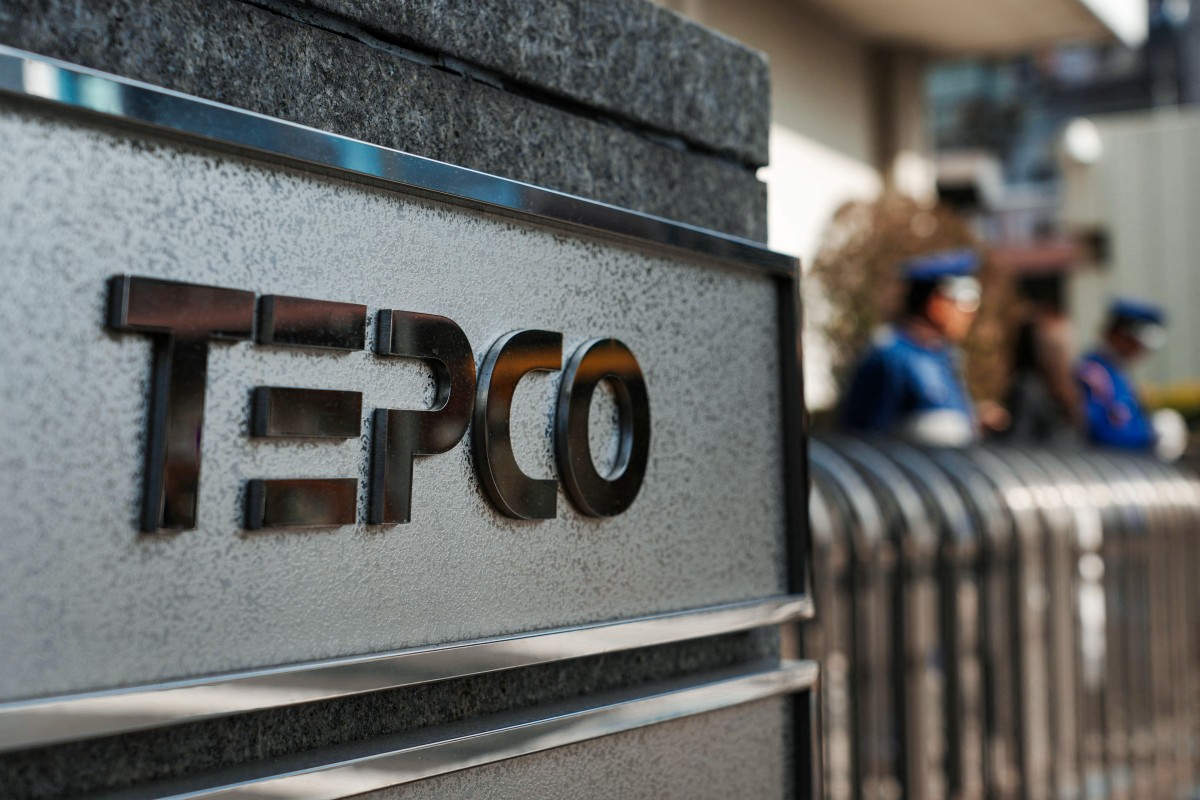
La centrale nucléaire japonaise de Kashiwazaki-Kariwa, la plus grande au monde, a repris ses activités mercredi pour la première fois depuis la catastrophe de Fukushima en 2011, malgré les inquiétudes persistantes d’une partie de la population.
La remise en service a eu lieu à 19h02 heure locale (10h02 GMT), a indiqué à l’AFP Tatsuya Matoba, porte-parole de la compagnie Tokyo Electric Power (Tepco).
Le gouverneur de la préfecture de Niigata, où se situe la centrale, avait donné son feu vert à la reprise le mois dernier, en dépit d’une opinion publique divisée. Selon une enquête menée en septembre par la préfecture elle-même, 60 % des habitants se déclaraient opposés au redémarrage, contre 37 % favorables.
Mardi, plusieurs dizaines de manifestants ont bravé le froid et la neige pour protester près de l’entrée du site, sur les rives de la mer du Japon.
« L’électricité de Tokyo est produite à Kashiwazaki. Pourquoi seuls les habitants d’ici devraient-ils être exposés au danger ? Cela n’a aucun sens », a déclaré à l’AFP Yumiko Abe, une riveraine de 73 ans.
La centrale de Kashiwazaki-Kariwa avait été mise à l’arrêt lorsque le Japon a fermé l’ensemble de ses réacteurs nucléaires à la suite du triple désastre de mars 2011 — un séisme, un tsunami et un accident nucléaire — survenu à Fukushima.
International
Markets rise as Trump halts Europe tariffs and floats Greenland agreement framework
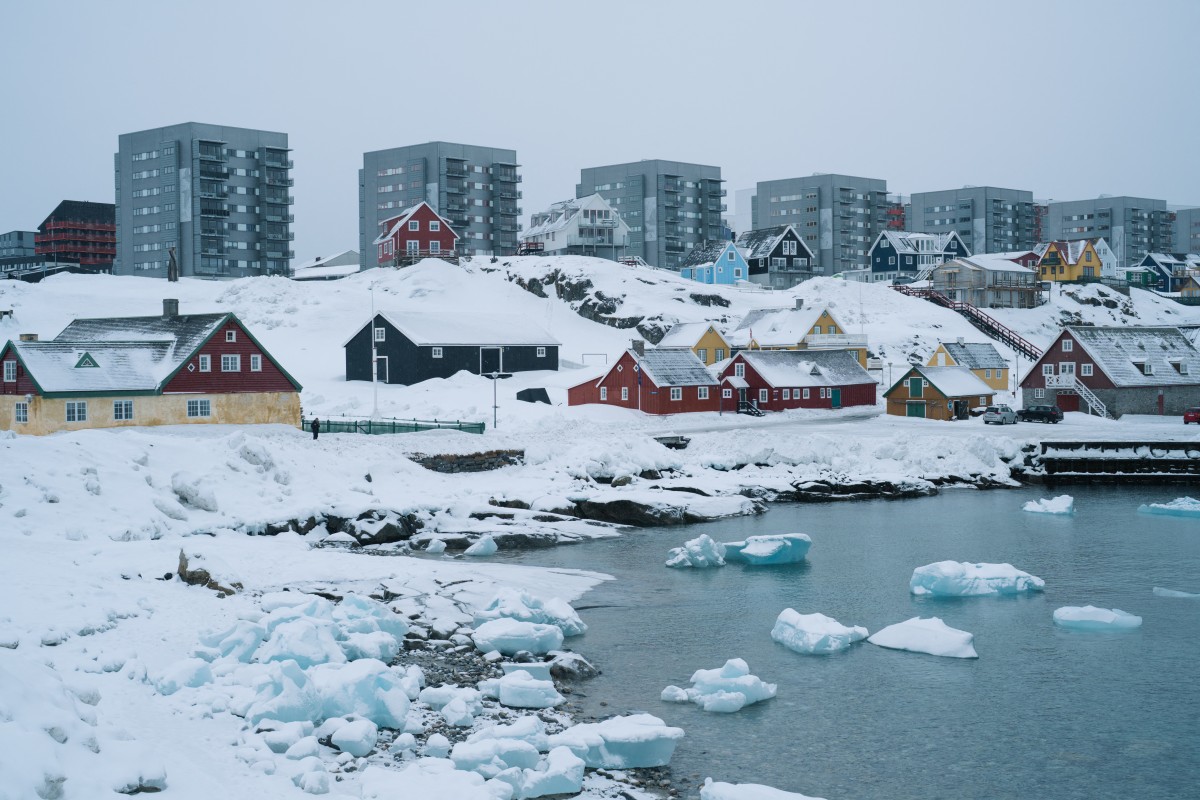
U.S. President Donald Trump on Wednesday lifted his threat to impose new tariffs on several European countries and said he had outlined the framework of a future agreement on Greenland during a meeting in Davos with NATO Secretary General Mark Rutte.
“Based on this understanding, I will not impose the tariffs that were scheduled to take effect on February 1,” Trump wrote on his social media platform Truth Social, without providing details about the proposed “framework.”
The announcement boosted financial markets. Wall Street, which had been trading slightly higher, extended its gains following Trump’s message, while the U.S. dollar strengthened against the euro.
Trump has repeatedly insisted that Greenland, rich in mineral resources, is ‘vital’ to the security of the United States and NATO, particularly as Arctic ice melts and global powers compete for strategic advantage in the region amid rising tensions with China and Russia.
Last week, the U.S. president threatened to impose tariffs of up to 25% on eight European countries for supporting Denmark and sending a military exploratory mission to Greenland. All of the targeted countries are NATO members, including the United Kingdom, Germany, and France, Europe’s largest economies.
Trump said on Wednesday that additional discussions are underway regarding the “Golden Dome” missile defense system, specifically in connection with Greenland.
He assigned Vice President JD Vance, Secretary of State Marco Rubio, and special envoy Steve Witkoff to lead the negotiations.
Hours before his post, Trump ruled out the use of force to seize Greenland for the first time, but demanded “immediate negotiations” for its acquisition, reiterating his view that only the United States can guarantee the security of the Arctic island.
International
Venezuela’s interim president predicts 37% increase in revenues for 2026
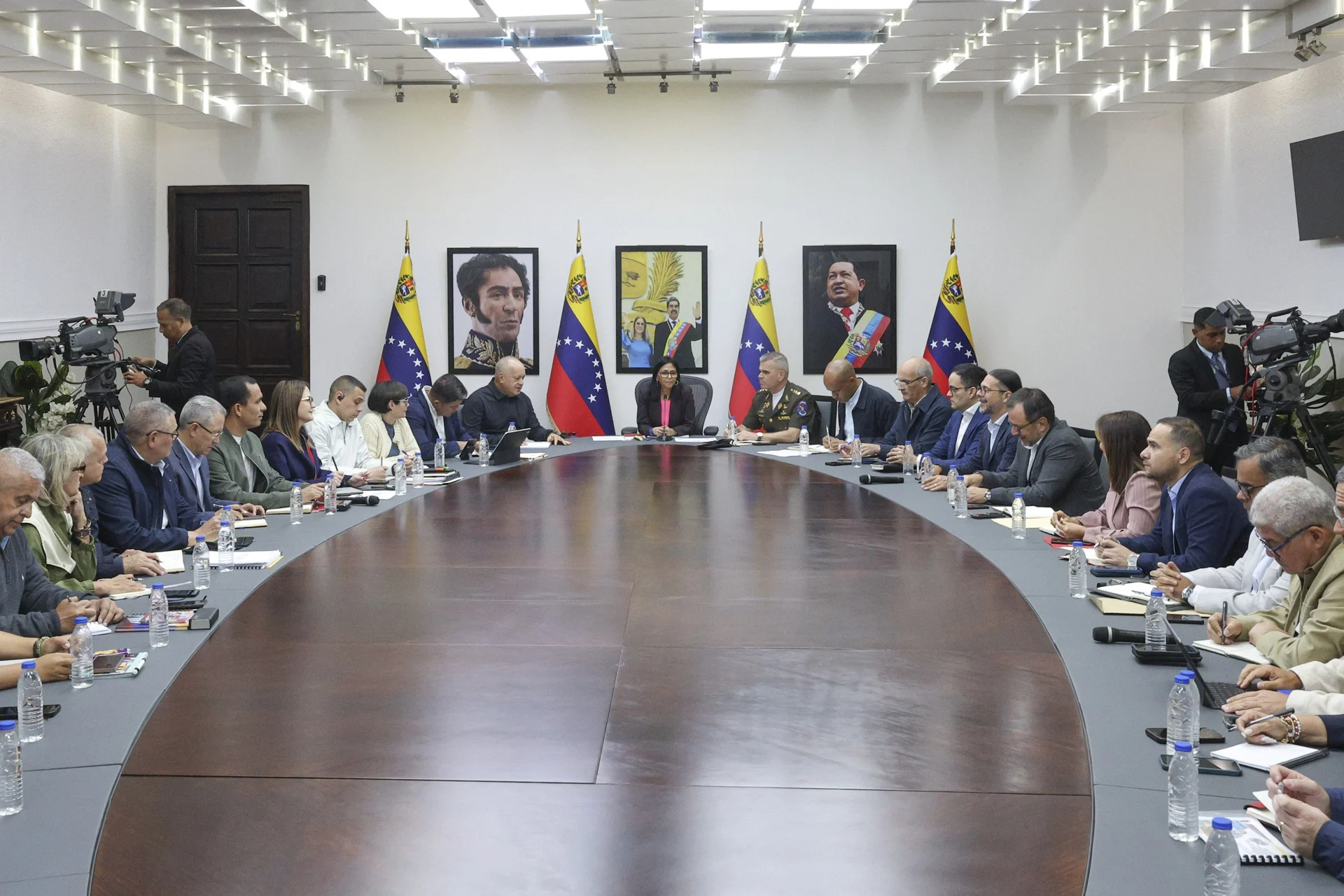
Venezuela’s interim president, Delcy Rodríguez, said Wednesday that the country’s revenues are expected to increase by about 37% in 2026, in a statement made during a session of the Federal Government Council at the Miraflores Presidential Palace in Caracas.
Rodríguez said the projected rise in foreign currency income comes as agreements on Venezuelan oil sales with the United States are being implemented, including deals in which Washington will trade Venezuelan crude and manage the proceeds before transferring funds to Caracas.
“This year, revenues expressed in foreign currency will increase by 37%,” Rodríguez declared, according to EFE. She noted that the increase will also benefit regional governments and local authorities. “You will have more resources for your management, which I know you need,” she added.
Rodríguez said the distribution formula for revenues will remain the same as in 2025: 53% for communes, 29% for state governments, 15% for municipalities, and 3% for institutional strengthening. She also said the government would intervene to “correct imbalances” in how funds are allocated, particularly among some municipal and regional authorities.
The announcement follows reporting that Venezuela received at least $300 million from oil revenues tied to a U.S.–Venezuela deal that could involve up to 50 million barrels of crude. Washington officials have said the interim government met U.S. requirements under the agreement.
-

 Central America4 days ago
Central America4 days agoGuatemala raises police death toll to nine after gang violence escalates
-

 Central America5 days ago
Central America5 days agoGuatemala prison uprisings leave 46 guards held by gangs
-

 International4 days ago
International4 days agoDeath toll from southern Spain train crash rises to 40
-

 International2 days ago
International2 days agoMexican influencer “La Nicholette” kidnapped in exclusive area of Culiacán
-

 International4 days ago
International4 days agoOver 160 christian worshippers kidnapped in Kaduna Church attacks
-

 International3 days ago
International3 days agoDaily Mail publisher insists reports relied on legitimate sources amid privacy trial
-

 International3 days ago
International3 days agoGermany says football bodies alone will decide on possible World Cup boycott
-

 International5 days ago
International5 days agoChile declares state of catastrophe as wildfires rage in Ñuble and Biobío
-

 International2 days ago
International2 days agoMajor winter storm to blanket U.S. and Canada with snow, ice and arctic cold
-

 International21 hours ago
International21 hours agoMarkets rise as Trump halts Europe tariffs and floats Greenland agreement framework
-

 Central America22 hours ago
Central America22 hours agoMazatenango Carnival cancelled amid State of Siege in Guatemala
-

 International4 days ago
International4 days agoSpain’s Prime Minister pledges transparency after train crash kills at least 39
-

 International2 days ago
International2 days agoTrump announces preliminary NATO agreement on Greenland, suspends tariffs on Europe
-

 International22 hours ago
International22 hours agoVenezuela’s interim president predicts 37% increase in revenues for 2026
-
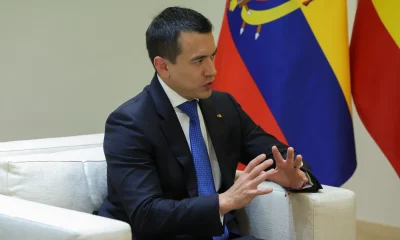
 International1 day ago
International1 day agoColombia slams Ecuador’s 30% tariff as ‘economic aggression’
-

 International22 hours ago
International22 hours agoTrump to invite Venezuela’s interim president Delcy Rodríguez to Washington
-

 International21 hours ago
International21 hours agoJapan reopens Kashiwazaki-Kariwa Plant despite public concerns
-

 International22 hours ago
International22 hours agoFour minors killed in deadly clash between FARC dissidents in Colombia’s Amazon
-
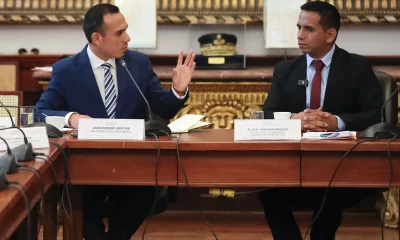
 International1 day ago
International1 day agoJosé Jerí claims destabilization attempt after videos of secretive meetings surface





























